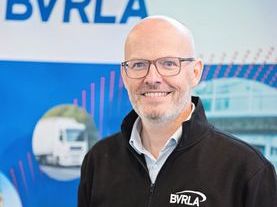The BVRLA has launched its second in a series of electric vehicle training courses designed to support members who are giving advice to customers looking to move to electric.
The new Electric Van & Trucks - Operational Technical Support course provides a detailed market overview of the electric van and truck landscape and supplies valuable advice and day-to-day operational technical support that will benefit fleet customers and drivers wanting to know more about managing and driving electric commercial vehicles.
This course follows the new Electric Vehicles (Cars) Operational Technical Support course, which launched last month and joined the stable of online instructor-led courses offered by the BVRLA.
BVRLA Head of Learning & Development, Mark Pow said: “As interest accelerates rapidly, electric vans and trucks are starting to make an appearance in many of the large corporate fleets and SMEs and therefore end customers are looking for answers to many of the fundamental technical questions. Members working with electric vehicles will find this course invaluable.”
The course is suitable for staff at all levels, including Sales, Account Management, Customer Services and Operational Driver Support roles from within the industry – where the customer may value support in effectively making the transition to EVs. Also, of interest to Fleet Managers and Fleet Operators.
Structured in two complementary modules, the course will cover an overview of the developing electric van and truck market and charging landscape, with the second module providing practical advice and guidance to customers operating or driving EVs.
Trainer Tim Campbell has 30 years’ experience in the UK commercial vehicle industry and has acted as the senior consultant to the UK's National Grid (Ventures) looking at the strategy required to implement electric vans and trucks over the next 20 years. Since 2013, he has run his own fleet consultancy business with the aim of helping businesses manage their vehicle fleets more effectively and future proofing the fleet by implementing the transition to 100% electric or Hydrogen Fuel Cell by 2030.




